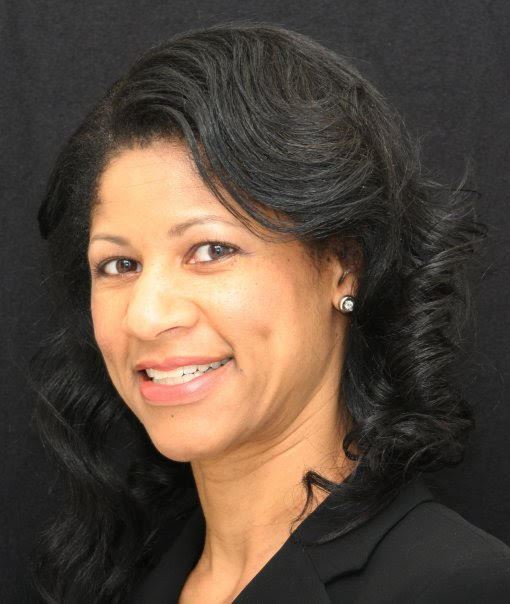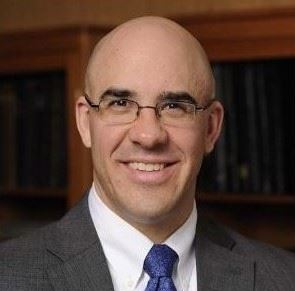FEBRUARY 2023
Submit an article for the Chesapeake Chronicle! If you or someone you know has timely and relevant information on planned giving, send us your article! |
|
Upcoming Events:
Public Policy for Planned Giving
February 22 | 12:30-1:30 PM | Webinar
NACGP Government Relations Committee Chair Bob Shafis will present on the IRA Legacy Act, a significant expansion in IRA giving opportunities.
About the Speaker:
 Robert Shafis has been a successful fundraiser, speaker and attorney for over 30 years, and through his personal fundraising and through programs under his direction has accounted for over $800 Million in major and planned gifts. He is currently Director of Planned Giving Services with Veritus Group.
Robert Shafis has been a successful fundraiser, speaker and attorney for over 30 years, and through his personal fundraising and through programs under his direction has accounted for over $800 Million in major and planned gifts. He is currently Director of Planned Giving Services with Veritus Group.
We’re thrilled to share that the Chesapeake Planned Giving Council’s upcoming study group for CAP® certification will be held from September 2023 to May 2024. This time window aligns with the support services for local study groups that are offered by the American College of Financial Services, which sponsors CAP® certification. We’re excited to partner as closely as possible with the College and are delighted that their faculty and study group resources will be available to the cohort of CAP® students who will be a part of this study group. Crucially, in acknowledgment of the busyness of the end of the calendar year, we are particularly pleased to share that this study group schedule includes minimal activity in the month of December 2023. Richard J. Letocha, J.D., CFP® |
|
By now you are familiar with the so-called charitable IRA "rollover." Since 2006, a donor aged 70-1/2 or older has been allowed to distribute up to $100k per year from their traditional IRA directly to your organization without taking it into income, and if they have passed their required beginning date, the distribution will count toward their minimum required distribution.
There is no income tax deduction, but the exclusion of the "qualified charitable distribution" (QCD) from income functions in effect as an above-the-line deduction for itemizers and non-itemizers alike. The distribution does not figure into the calculation of the taxability of Social Security benefits or Medicare Part B premiums, and it will not push your donor into a higher marginal rate bracket or an income range where the 3.8 percent Medicare surtax on net investment income might apply. What's New You may have heard that a new feature has been added to the charitable IRA "rollover" as part of the $1.7 trillion appropriations bill enacted at the end of December. Effective January 01, 2023, your eligible donor can roll up to $50k in any single year from their traditional IRA directly into a life income gift, a charitable remainder trust, or a charitable gift annuity, for the benefit of themselves and/or their spouse. As with the more familiar QCD, the "Legacy IRA rollover" will be excluded from income, but will still count toward your donor's minimum required distribution if they have passed their required beginning date -- which, incidentally, the same legislation has now pushed back to age 73. There has been some confusion over some of the key components of this new legislation, which we will try to clear up here. Election The new benefit is elective. Obviously, IRS has not yet had an opportunity to map out the mechanics of the election, but presumably, this would be made on an income tax return reporting the distribution. The distribution into the life income vehicle must still be made directly from the traditional IRA, that is, it cannot pass through the donor's hands. Absent the election, the distribution would be reportable as income and offset only partly by a deduction for the present value of the trust remainder or the residuum to charity after the gift annuity. The election is to treat the distribution "as though" it would qualify as a QCD. This strongly suggests that the $50k limit is to be counted against the $100k annual limit. One and Done The legislation expressly provides that this election can be made in only one tax year, and only to the extent of $50k. Thus, while your donor might fund multiple life income vehicles with such distributions in a single year, these can aggregate no more than $50k, and your donor will not be able to make similar elections in any later year. The legislation also requires that the life income vehicle be funded from no other source than these elected distributions. Thus, a charitable remainder trust funded from a "legacy QCD" can hold no other assets, and the election cannot be used to fund a gift annuity together with other assets at more than the $50k amount. Note, however, that because the life income vehicle might benefit both the IRA participant and their spouse, a couple aged 70 or older might contribute up to $50k each to a single remainder trust or gift annuity benefiting both. As a practical matter, it will rarely make sense to fund a charitable remainder trust with only $50k, or even $100k with both spouses contributing, but there are many donors for whom the gift annuity may be attractive. Payout Ordinary Income The legislation further provides that distributions from a life income vehicle funded from an elected QCD be taxed entirely as ordinary income. All distributions from the charitable remainder trust will thus be "first tier," and there will be no "recovery of investment" component to the gift annuity payout. Of course, distributions from the traditional IRA would have been taxed as ordinary income anyway, but by electing to treat a transfer to a life income vehicle as a QCD, your donor will have shifted the tax incidence on these distributions back some number of years. Minimum Payout The legislation specifies that a gift annuity funded by an elected QCD must pay out at least five percent. If the issuing charity is adhering to the ACGA recommended rates, this will effectively preclude some two-life arrangements where there is a large age difference between the spouses. And of course, Code section 664(d) already requires that a charitable remainder annuity or unitrust payout at least five percent. But note that the legislation here does not forbid a net income limitation in a unitrust, which would allow the tax incidence of the IRA distribution to be deferred yet further. Nor does the legislation expressly preclude a term of years, or a qualified contingency that might terminate the trust early, whereas of course, a gift annuity must be for the life of the annuitant. Non-Assignable The legislation does require that the income interest in a life income vehicle funded by an elected QCD not be assignable. Again, we do not yet have guidance from IRS, but there is at least some informal legislative history suggesting that this prohibition applies not only, for example, to an assignment to fund a different life-income vehicle, but even an outright assignment to the trust remainderman or the issuing charity itself. Conclusion The "Legacy IRA" is the result of a persistent lobbying effort over more than a dozen years by key players in the nonprofit sector. Until now, it has not been possible for your donor to fund a gift annuity at even these modest amounts from their IRA without first taking the distribution into income and then claiming a deduction for only the present value of the residuum. The "Legacy IRA" allows them to exclude the distribution from income in the year of the transfer -- effectively an above-the-line deduction for the entire amount -- and spread the tax incidence of the distribution out over twenty-odd years. The final product is scaled back considerably from earlier versions, but the gift annuity component, at least, will provide excellent opportunities for some, and the charitable remainder trust component might perhaps be seen as a foot in the door. | About the Author
Russell Willis III, J.D., LL.M Among his other engagements, Russ is a manager of noncash research for Charitable Solutions, LLC, a planned gift risk management consulting firm headed by Bryan Clontz. About five years ago, he launched a newsletter, the Jack Straw Fortnightly, analyzing current developments in the law -- both tax and nontax -- concerning the transfer of private wealth in this country. Russ has a law degree from St. Louis University and a master's degree in Taxation Law from Washington University in St. Louis. His undergraduate degree in English Literature is from Indiana University, Bloomington, and he has a master's degree in English from the University of Chicago. A transportational bicyclist and sometime bike mechanic, Russ has lived (almost) car-free since 2008. |



